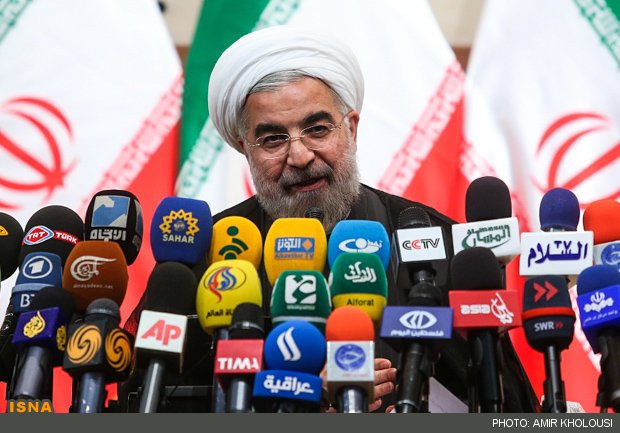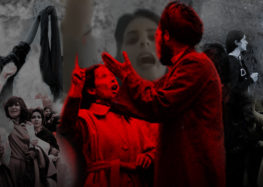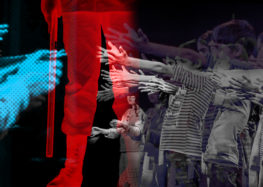Newly Reelected Rouhani Abandons Promise to End Six-Year House Arrest of Opposition Leaders

In his first press conference after being declared the winner of Iran’s May 19, 2017 election, President Hassan Rouhani refused to commit to ending the more than six-year extrajudicial house arrests of three opposition leaders—a pledge he made during his first presidential campaign.
Asked what he would do to free opposition leaders Mehdi Karroubi, Mir Hosseini Mousavi and Zahra Rahnavard, who have been detained for more than six years for leading the peaceful, mass protests against the disputed result of the 2009 presidential election, Rouhani suggested that a solution depended on cooperation from other branches of state.
“The country is ruled by laws and we should all submit to them,” he said on May 22. “The executive, legislative and judicial branches have their own responsibilities. We are moving forward on the basis of the Constitution.”
“I am responsible for the rights of every citizen, even Iranians living abroad,” added Rouhani. “Wherever I see the rights of Iranians being violated, I will take action within my powers. In cases related to the judiciary, I will respond by direct communication or in joint meetings. The next government plans to implement the Charter on Citizens’ Rights. In this respect, the rights of all people are important to me.”
Rouhani made no reference to Supreme Leader Ali Khamenei, whose adamant opposition to freeing the three detainees has kept them detained in legal limbo.
At a presidential campaign rally at Sharif University in Tehran on May 13, 2013, Rouhani said he hoped he could free the three within the first year of his presidency: “We can provide conditions such that over the next year, individuals who were imprisoned or put under house arrest for the 2009 events are released.”
Amid Rouhani’s virtual silence on the issue during his first term, other politicians raised it a number of times, including conservative Deputy Parliament Speaker Ali Motahari, who has repeatedly spoken of the need for a solution.
In an interview on May 8, 2017, Motahari repeated his suggestion that the issue could be resolved through negotiation.
“Some steps have been taken towards resolving the house arrests and we have to listen to the reasoning by the opposing side,” he said. “We have to move towards improving the conditions in the country and prevent issues before they turn into a crisis.”
Motahari has previously explained that Khamenei is the driving factor behind the continuing house arrests.
“One of the obstacles against their freedom has been the insistence by some officials that if they do not apologize and repent, it will damage the state and the supreme leader,” said Motahari. “It isn’t wrong to have an opinion about the 2009 incidents different than those of people in power…keeping (Mousavi, Rahnavard and Karroubi) under house arrest for six years is neither compatible with the law nor with religious teachings.”
At the May 22 press conference, the newly reelected president was also asked about his policies on protecting the rights of the artistic community, particularly those in the music and film industries.
“One of the outcomes of this year’s elections was that everyone was at peace with music,” responded Rouhani. “However, we are not too fond of cheap music. Some say that’s fine as well, but in any case, I am certain our new government will give more support to the cultural community.”
“The situation did improve for music and cinema in our previous four years, but we will make greater efforts in the next four,” he added.
Since 2013, when Rouhani was voted into office promising a more open society, numerous state-sanctioned musicians, including the popular musical artists Alireza Ghorbani and Sirvan Khosravi, saw their concerts canceled at the last moment.
Religious conservatives have justified their attacks on musicians by quoting vague statements and decrees by senior religious leaders. Khamenei has himself often warned about the alleged dangers of music, saying it will “lead people away from the path of God.”
Rouhani also said his government would adopt proposals based on educational guidelines provided by the UN 2030 Agenda—vehemently opposed by conservatives—that do not violate Islamic principles.
“The ministers of foreign affairs, science and education wrote to the supreme leader explaining to His Excellency at length that the Islamic Republic of Iran has reserved the right to ignore parts of agenda 2030 that do not conform with our culture and national values,” said Rouhani.
On the issue of women in the workforce, Rouhani said his government would do more to increase women’s employment prospects.
“It’s wrong to think that men have a higher status or that they are more capable than women,” he said.
At the same time, Rouhani echoed Khamenei’s sexist views by claiming certain jobs are more suitable for men than women.
“It’s wrong to think that men have a higher status or that they are more capable than women,” he said at the same press conference. “Of course men are better at some professions and women are better at others. (God) has given both their own special qualities.”
“But women are not lower than men and keeping them inside the house does not make sense from social or legal standpoints,” he added.





